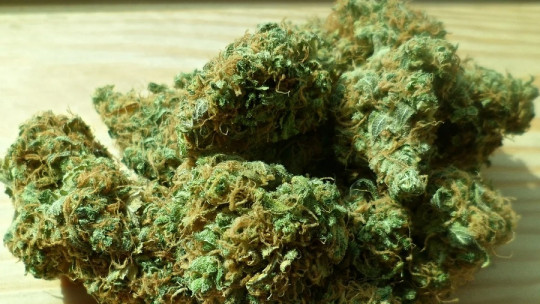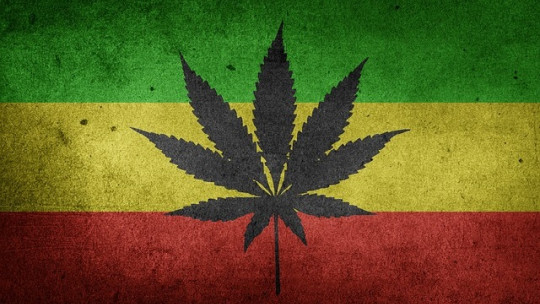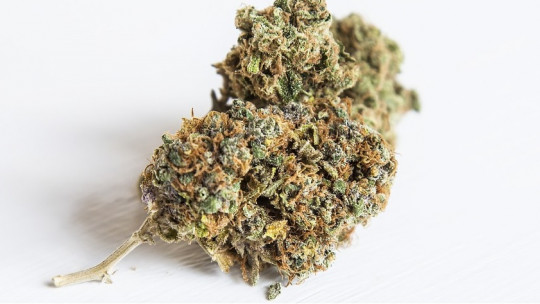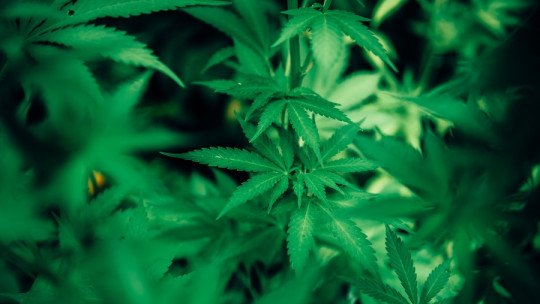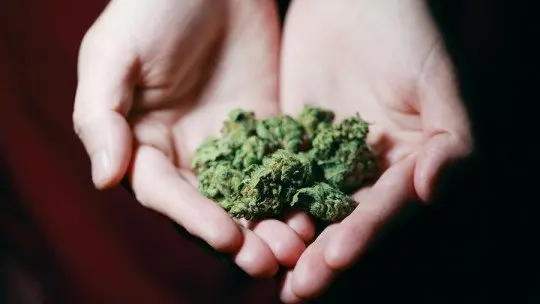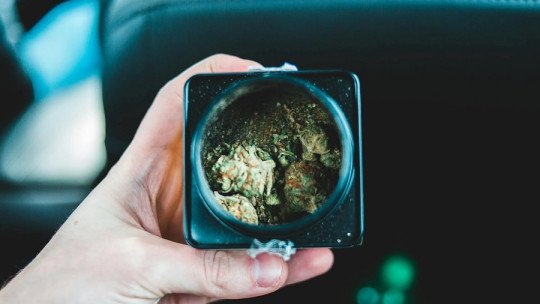
Being young is not easy; We all agree on that. The need for social acceptance and to generate satisfactory bonds with other people, together with recurring insecurities or lack of self-esteem, can lead to the development of self-destructive behaviors that can be dangerous for healthy development. An example is the consumption of addictive substances, such as cannabis.
Cannabis use among young people has been a topic of growing interest and concern in recent years As public perception of marijuana has evolved and usage patterns have changed with this evolution, it is crucial to understand the ways this plant influences the lives of the younger population. One of the most notable aspects that has emerged in recent research is the tendency of young people to turn to cannabis as a form of self-medication.
On many occasions, in order not to think about their problems or not face them, it is common and reflected in scientific data, the use of cannabis as a way to evade problems and, in some way, self-medicate against emotional pain. This pattern of behavior can be very dangerous and lead to more dangerous complications in the long term if it is not identified and a solution is provided.
In this article, We are going to talk about the changes in the way young people consume cannabis, generating this toxic relationship with this substance as a healing agent, instead of understanding and protecting themselves from its dangers
Context of cannabis consumption
To understand whether young people are turning to cannabis as self-medication or to escape their emotional problems, it is essential to first place the issue in its more general context. Cannabis use among adolescents and young adults has been a recurring phenomenon in many societies over time, but in recent years, it has experienced notable changes.
Statistics show that cannabis use among young people is often associated with curiosity, peer pressure and the search for new experiences. However, in recent years, There has been growing research interest in the deeper reasons behind cannabis use in addition to these social factors Thus, it is asked whether cannabis consumption among youth has increased, functioning as a strategy for emotional management and self-medication.
Studies and surveys suggest that cannabis use is an option that some young people consider to relieve stress, anxiety or even symptoms of depression. In a world that is constantly changing and with increasing challenges in terms of mental health, it is important to analyze whether cannabis is being used as a coping strategy.
This evolution in the perception of cannabis use among young people raises important questions about education, public health and regulation. Should prevention and support efforts be targeted differently at young people who use cannabis for self-medication reasons compared to those who do so for purely recreational reasons?
Use of cannabis as self-medication
Self-medication refers to the act of using a substance to relieve physical and/or mental health symptoms or problems without taking into account the guidance of a health professional. These behaviors can be developed both consciously and subconsciously. In this case, We would be talking about the use of cannabis among young people as a coping strategy for problems and emotional pain
When we talk about self-medication with cannabis in young people, it is important to highlight that this practice can be the result of a series of factors. One of the most cited reasons is the desire to relieve stress and anxiety. Today’s young people face a range of emotional and psychological challenges, from academic pressure to social tensions and uncertainty about the future. In this context, some turn to cannabis as a form of escape or relaxation.
In addition to stress, some young people can also use cannabis to treat symptoms of anxiety or even mild symptoms of depression. The perception that cannabis has relaxing properties and can induce a feeling of euphoria may make it attractive as a temporary solution to emotional problems.
However, it is essential to highlight that self-medication with cannabis is not without risks Lack of medical supervision and self-medication can lead to inappropriate and potentially harmful use. Additionally, cannabis use in a young population raises additional concerns due to its effect on ongoing brain development.
Factors that drive self-medication
Statistical and epidemiological data reveal a growing trend of self-medication with cannabis among young people. To better understand this trend, it is essential to explore the factors that drive young people to turn to cannabis as a form of self-medication.
1. Stress and anxiety
One of the main reasons that lead young people to self-medicate with cannabis is the search for relief from stress and anxiety. Academic, social and personal pressures can generate high levels of stress in this population Some young people perceive cannabis as a way to relax and reduce anxiety, although this is often a short-term solution that can have detrimental long-term effects on their well-being.
2. Mental health problems
Some young people use cannabis as a way to cope with mental health problems, such as depression or anxiety disorders. However, this approach is controversial, as cannabis can exacerbate symptoms rather than alleviate them in some cases. In addition, self-medication without medical supervision can delay the search for appropriate treatments.
3. Curiosity and social pressure
Curiosity and peer influence are also factors that drive young people to try cannabis. In some cases, initial use may be due to the influence of friends or the desire to fit in with a group. However, initial use for social reasons may evolve into a form of self-medication if young people find that cannabis alleviates their emotional problems
4. Lack of access to mental health services
Lack of access to adequate mental health services and stigmatization around mental health problems can lead young people to seek solutions on their own, including cannabis. It is essential to address this aspect to ensure that young people receive the necessary support from mental health professionals.
Risks of self-medication with cannabis
As we have already discussed, cannabis may seem like a tempting solution for some young people looking to relieve stress or anxiety symptoms. However, it is essential to understand the risks associated with self-medication and promote emotional education that helps all people cope with their problems in a constructive and healthy way. The risks of self-medication with cannabis among young people can be significant and should be carefully considered:
1. Adverse psychological effects
Cannabis can have adverse psychological effects, especially in young individuals whose brains are still developing. Cannabis use may increase the risk of mental disorders, such as psychosis, schizophrenia, and bipolar disorder especially in those with a genetic predisposition.
2. Dependency and abuse
Regular cannabis use can lead to dependence, meaning that young people can develop an ongoing need for the substance to function normally. This can negatively affect your quality of life and personal relationships.
3. Impact on academic performance
Cannabis use can have a negative impact on young people’s academic performance. It can hinder concentration, memory and learning ability which can lead to lower academic outcomes and limit future opportunities.
4. Legal problems
Depending on the jurisdiction, cannabis use may be illegal for youth. Misuse of this substance can lead to legal problems, which can negatively affect your future.
5. Long-term risks to physical health
In addition to psychological risks, cannabis use can also have negative consequences for physical health It can affect lung function, increase the risk of cardiovascular disease and have detrimental effects on the respiratory system.
6. Disruption of brain development
Young people’s brains continue to develop into their twenties, and cannabis use during this critical period can interfere with normal brain development, which can affect decision-making, memory, and other cognitive functions.
Conclusions
In conclusion, cannabis use as a form of self-medication among young people raises significant concerns, including mental health risks, brain development and overall well-being It is essential to address this issue with education, appropriate support and an understanding of the risks involved. To ensure the health and future of youth, a balanced approach is required that promotes healthy coping solutions and seeking professional help when necessary.

